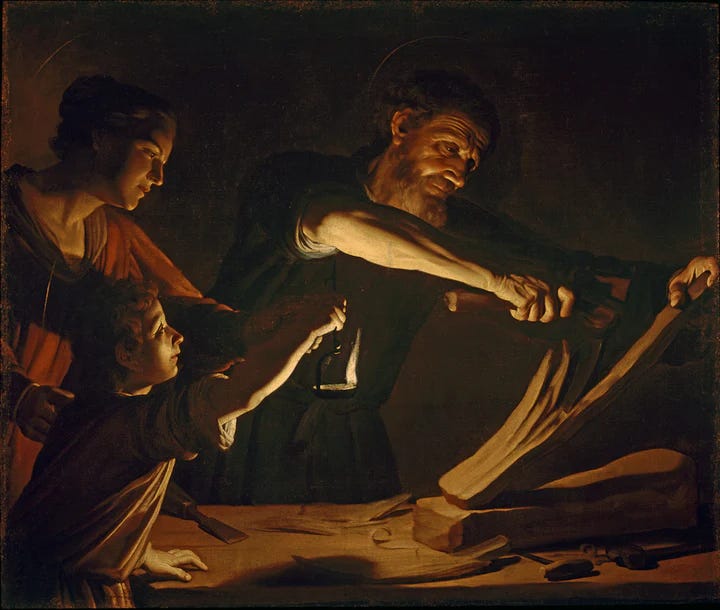The devil has no problem with contradictions, as long as people sin. He is OK with an incoherent worldview. He prefers a tangle of contradictory lies for the furthering of his purposes. This is seen most clearly in modernity with our contradictory and confused dogmas on sexuality. On the one hand, our culture chants, “égalité”, but at the same time we have, in the vilest ways, highly hierarchical erotic media and culture. All of our universities will make sure they hire women who check at least five intersectionality boxes for six-figure DEI positions. But then they will play the top hip-hop songs over the loudspeakers at the basketball games, which make Don Juan look tame. Our culture has no objection to a harem of unloved women with their bodies given to wicked men and exhibited immodestly, as long as they feel empowered. These contradictions should not surprise us. They should remind us not to take the lies of the serpent seriously: there is no truth in him.1
Irresistible Order
The lies of feminism and egalitarianism have attempted to convince us that everything is equal across all areas of life and that there are no God-ordained differences in roles between men and women. The culture tries to catechize our sons and daughters: “There is no hierarchy.” Hierarchy reminds us too much of the differences between God and ourselves. It makes us think of lofty and oppressive cathedral ceilings, which makes us remember how long it has been since we went to church.
But even though our culture has thrown itself headlong into egalitarian lies, it constantly has to stick its fingers in its ears and say, “LA LA LA” so it can remain deluded. This is because, while our culture has its egalitarian orgy, it envies the married couple that lives across the street. It sees them walking up their driveway, her leaning on his arms, both laughing together after a dinner date, and it envies. It will write a million mass-market paperbacks to try and follow them into their blessed bedroom but will fail. The only way in there is, "until death do us part…"
There is no romance without the polarity that the Christians talk about. The egalitarians screech at it by day and envy it by night. There is no romance without the scary words of headship and submission. There is no romance without the pursuer and pursued. There is no romance without the lover and beloved.
Appearances and Reality of Hierarchy
God’s ordained hierarchies: familial, civil, or ecclesiastical, appear to our fallen nature to be too demanding. We are afraid to accept them. There is a fear of the abuse of power. There is a fear of a loss of individuality. And, because we are in a fallen world, these fears have some grounding. The surface-level appearance is too much to handle, so we rebel against the whole order.
The most fundamental institutions of God’s order have this surprising property: they are unimaginably risky. Marriage is risky. Fatherhood is risky. Motherhood is risky. Being a good king is risky. Being a loyal subject is risky. These things appear so risky that they are never fully pragmatic decisions. But no true adventures are. We find in us a fear of any hierarchical order, yes, but we simultaneously find another sentiment: Inexplicable attraction.
C.S. Lewis explores this in his excellent novel, That Hideous Strength. Among those living at the house at St. Anne’s, our agnostic and feminist protagonist Jane finds herself in an otherworldly, hierarchical, and antiquated environment. And she is repulsed. But as she lives among them, she comes to find that there is a surprising equality to the day-to-day activities among them. The men and women are even taking turns doing the washing up. “I thought this was a hierarchical thing?” she thinks.
And the answer is that it is, but it is a hierarchy from Heaven, in which we find harmony. The appearance of the hierarchy was repulsive but was emanating a warmth that thawed her cold bones. Jane finds a warm love there: a love she has not been able to access because it burns on a fuel that her ideology had led her to reject. She couldn’t love because she never attempted obedience. Pick up that book if you haven’t yet.
Our culture says, “We believe in egalitarianism, we believe in egalitarianism! Equal! Equal! Equal!” But Christians say, in accord with Sacred Scripture and Nature, “Different, different, different”. But, if one looks at how we live, it often looks more like, “Equal, equal, equal.” God’s institutions are ordered to the genuine good of the individual person, towards love. That is what Christians aim at. Not some disembodied Enlightenment ideal of equality that sounds an awful lot like the hiss from a tree in Eden.
Belonging in Marriage
You shall not covet your neighbor’s wife, or his male servant, or his female servant, or his ox, or his donkey, or anything that is your neighbor’s (Exodus 20:17).
The Ten Commandments are more than a checklist of don’ts, although they certainly are that also. They teach us about the character of God, and how God calls us to live. When He says, You shall not steal, personal property rights are enshrined as a good. You shall not commit adultery shows us that to God, marriage is a real and binding thing.
So in the tenth commandment, you will notice that “wife” is listed as someone who “is your neighbor's”. God says, in some way, that the wife belongs to her husband. How can we presume to say otherwise? This is something that was assumed in the past, but today it is like fingers on a chalkboard: we don’t like it. But to deny this truth is, in a sense, to break this commandment. If the commandment is to “not covet anything that belongs to our neighbor”, and the first thing we do is to start explaining it away, we are setting ourselves in opposition to the very sentiment of the commandment.
So what is the nature of that belonging? The Scriptures says that the relationship of husband and wife reflects in a mysical way the relationship between Christ and the Church. The Church says to Christ, “I am yours”: meaning, “I am at your disposal, and I belong to you.” Christ says to the Church, “You are mine.” meaning, “You belong to me, and I call you my own.” So in one sense, this belonging is one way: the Church to Christ, wife to husband.
But I want you to understand that the head of every man is Christ, the head of a wife is her husband, and the head of Christ is God. (1 Corinthians 11:3)
For if the man is the head, the woman is the heart, and as he occupies the chief place in ruling, so she may and ought to claim for herself the chief place in love." (Casti Connubii2, 27)
But it is also true that the Church says to Christ, “You are mine.” And when she says that, she means, “I call on you, honor you, and claim you as my Lord.” And the Bridegroom says to His Bride, “I am yours.” He means, “I am your Saviour, I am your Lord. I make my covenant with you, and I lay down my life for you. All my benefits I give to you, in great love.” The Bride freely says, with all the power of her individuality and personhood:
I am my beloved's, and my beloved is mine (Song of Solomon 6:3)
So, even in hierarchy, there is a mutual belonging. The liberal order has little space for this truth. There is an interdependance that is part of all the good relationships in this world. And that interdependence is our strength. This is the Divine Order. The Love that was before the world began is the source of all hierarchy. It turns the stars and the planets,3 and has a place for you. The world, in positing egalitarianism, is saying, “you are interchangable.” That is a lie. It is a sort of heresy, actually: confounding the persons.
Conclusion
We began with the idea that the devil does not care about contradictions. He constantly lies when he incites rebellion in our world. This is the fundamental point here: The system of this world puts on a pretense of caring about equality, but it is just a lie. The same way that the issue of environmentalism, an issue that does require actual attention, has often been used as a pretense for political changes, “equality” is the pretense for the destruction of the most fundamental and heavenly good of society: the family.
When we rebel against God’s hierarchy, we are not left with no hierarchy. We are left with demonic hierarchies. We are left with slavery without masters.4 We are left with a tyranny without a lord. We are sold a freedom from oppression, a freedom without Authority, even a freedom without God, the Father. There is a door to such “freedom”, but it is the door to Hell.
“Hierarchies are celestial. In hell all are equal” —Nicolás Gómez Dávila5
St. Paul hoped he would, by his apostolic ministry, provoke the Jews to envy6, and so cause them to look into the true gospel and be saved. May our families, in love, in truth, and in all their antiquated hierarchical glory, provoke our world to that holy and saving envy.
John 8:44
Pope Pius XI
Here vigour failed the lofty fantasy:
But now was turning my desire and will,
Even as a wheel that equally is moved,
The Love which moves the sun and the other stars” — Datne, Paradiso, XXXIII, 142-145
La sociedad del futuro: una esclavitud sin amos. —Nicolás Gómez Dávila
Read Traditionalist from Bogota for more of his excellent aphorisms.
Romans 11:14: I magnify my ministry in order somehow to make my fellow Jews jealous, and thus save some of them.






I’m reading through “That Hideous Strength” now. Made me think of the quote, “No one has ever told you that obedience—humility—is an erotic necessity. You are putting equality just where it ought not to be.” Great post!
I must confess that I am absolutely delighted by the quote from the incomparable Nicolás Gómez Dávila: “Hierarchies are heavenly. In hell all are equal.” Congratulations for this excellent article!